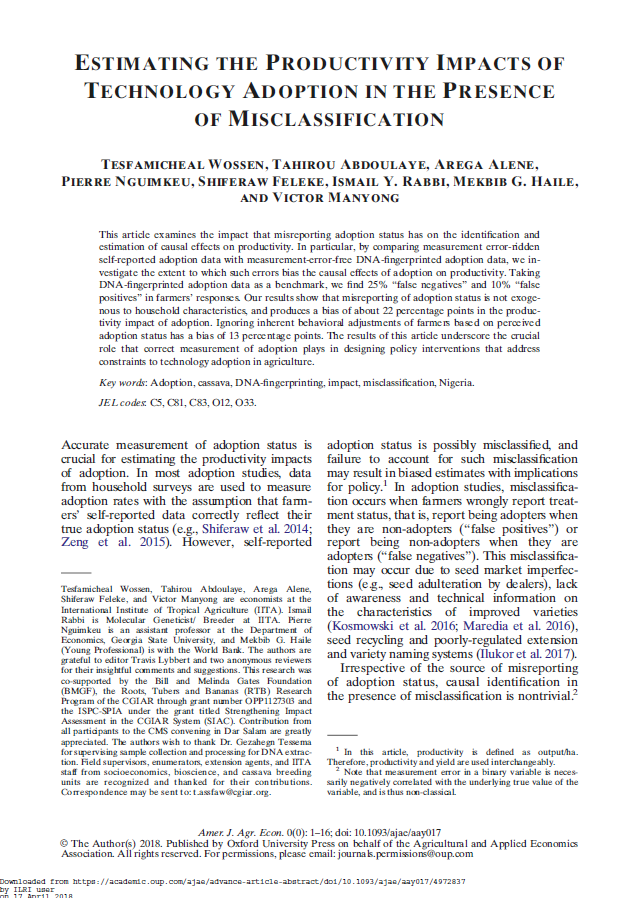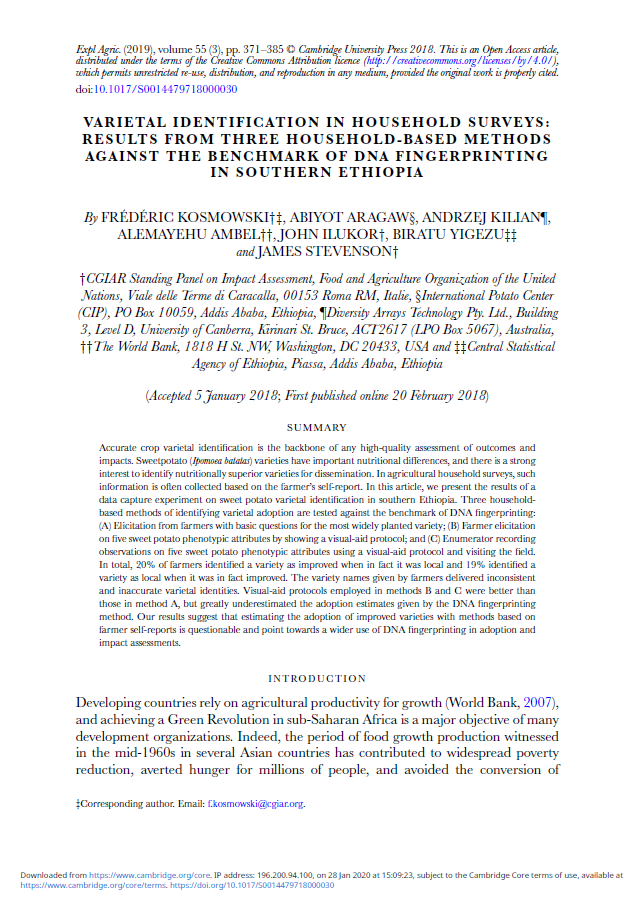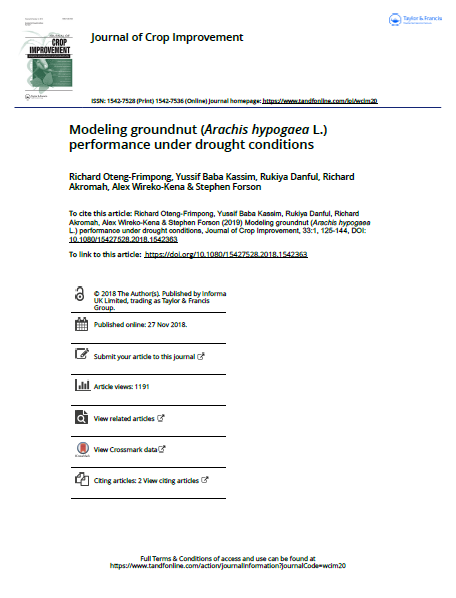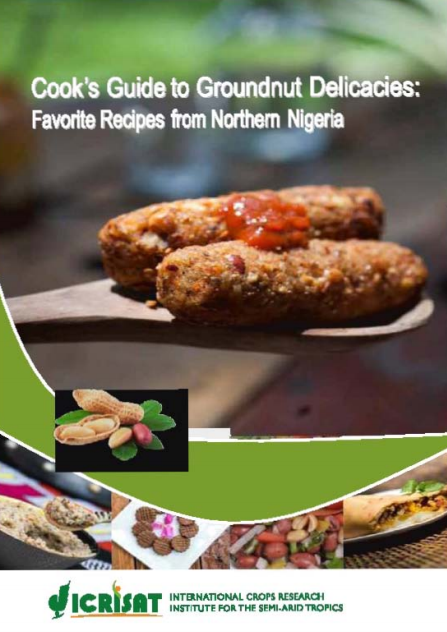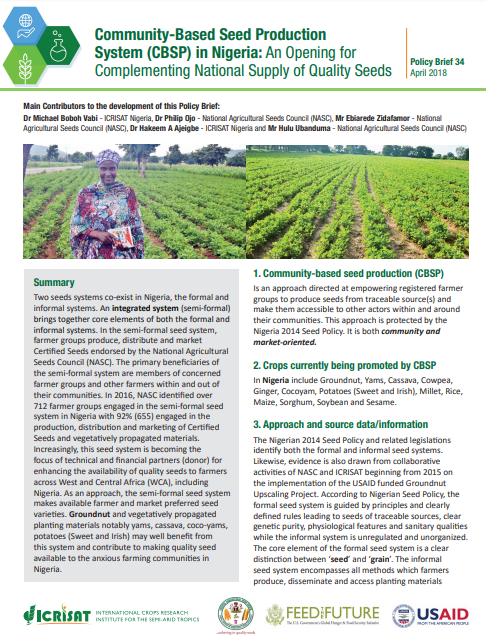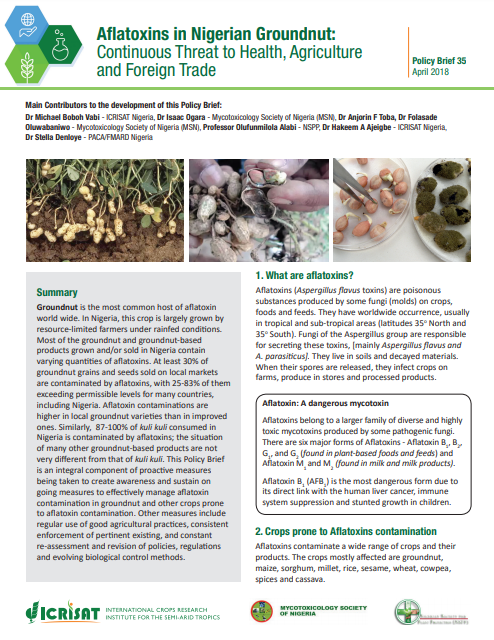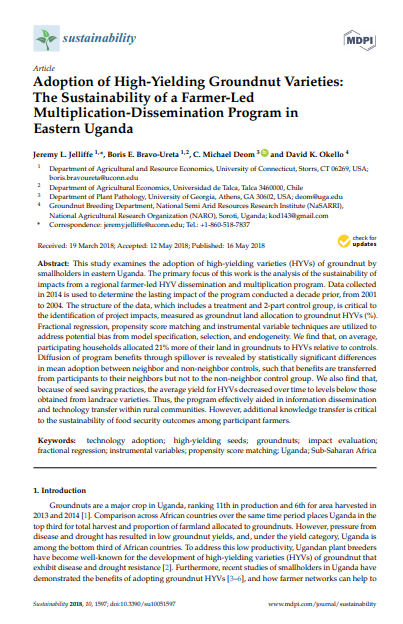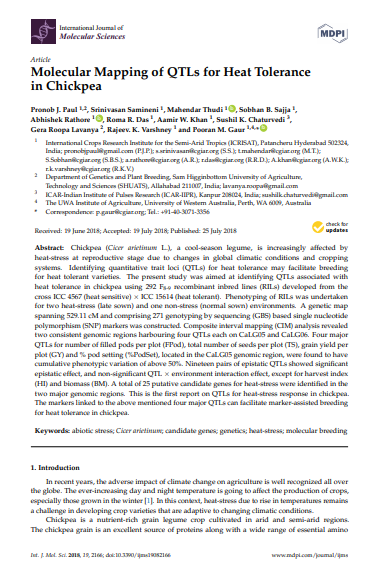Estimating the Productivity Impacts of Technology Adoption in the Presence of Misclassification
This article examines the impact that misreporting adoption status has on the identification and estimation of causal effects on productivity.
Project: TLII, TLIII
File type: PDF (334.95 KB)
Varietal Identification in Household Surveys: Results from Three Household-based Methods Against the Benchmark of DNA Fingerprinting in Southern Ethiopia
This article presents the results of a data capture experiment on sweet potato varietal identification in southern Ethiopia. The results point towards a wider use of DNA fingerprinting in adoption and impact assessments.
Project: TLII, TLIII
File type: PDF (364.31 KB)
Modeling groundnut (Arachis hypogaea L.) performance under drought conditions
Erratic rainfall is often a limiting factor in the semi-arid regions where most groundnut cultivation occurs. Ensuring availability of cultivars that possess inherent tolerance to drought stress has become a priority. Field and box experiments were conducted under drought and non-drought conditions to identify physiological and agronomic traits correlated with pod yield.
Project: TLIII
File type: PDF (2.58 MB)
Cook’s guide to groundnut delicacies: favorite recipes from northern Nigeria
This Cooks’ Guide from Nigeria recommends including groundnut in at least one meal a day and gives various options for it.
Project: TLIII
File type: PDF (8.44 MB)
Community-based seed production system (CBSP) in Nigeria: an opening for complementing national supply of quality seeds
This policy brief provides an overview of an integrated seed system (semi-formal) which brings together core elements of both the formal and informal systems. In the semi-formal seed system, farmer groups produce, distribute, and market certified seeds endorsed by the National Agricultural Seeds Council (NASC).
Project: TLIII
File type: PDF
Aflatoxins in Nigerian groundnut: continuous threat to health, agriculture and foreign trade
This Policy Brief is an integral component of proactive measures being taken to create awareness and sustain on-going measures to effectively manage aflatoxin contamination in groundnut and other crops prone to aflatoxin contamination.
Project: TLIII
File type: PDF (1.90 MB)
Adoption of high-yielding groundnut varieties: the sustainability of a farmer-led multiplication-dissemination program in Eastern Uganda
This study examines the adoption of high-yielding varieties (HYVs) of groundnut by smallholders in eastern Uganda. The primary focus of this work is the analysis of the sustainability of impacts from a regional farmer-led HYV dissemination and multiplication program
Project: TLIII
File type: PDF (672.30 KB)
Groundnut production constraints, farming systems, and farmer-preferred traits in Tanzania
The objective of this study was to document groundnut farmers’ major production constraints, farming systems, and varietal trait preferences in selected agro-ecologies of Tanzania.
Project: TLIII
File type: PDF
Groundnut entered post-genome sequencing era: opportunities and challenges in translating genomic information from genome to field
A review of the optimum genetic and genomic resources that are key for accelerating the process of trait mapping and gene discovery and deploying diagnostic markers in genomics-assisted breeding.
Project: TLIII
File type: PDF
Molecular mapping of QTLs for heat tolerance in chickpea
The present study aimed to identify QTLs associated with heat tolerance in chickpea using 292 F8-9 recombinant inbred lines (RILs) developed from the cross ICC 4567 (heat sensitive) × ICC 15614 (heat tolerant).
Project: TLIII
File type: PDF (2.03 MB)


